General
Mak Gender Mainstreaming Directorate to Start a University Men’s Forum
Published
2 years agoon
By
Mak Editor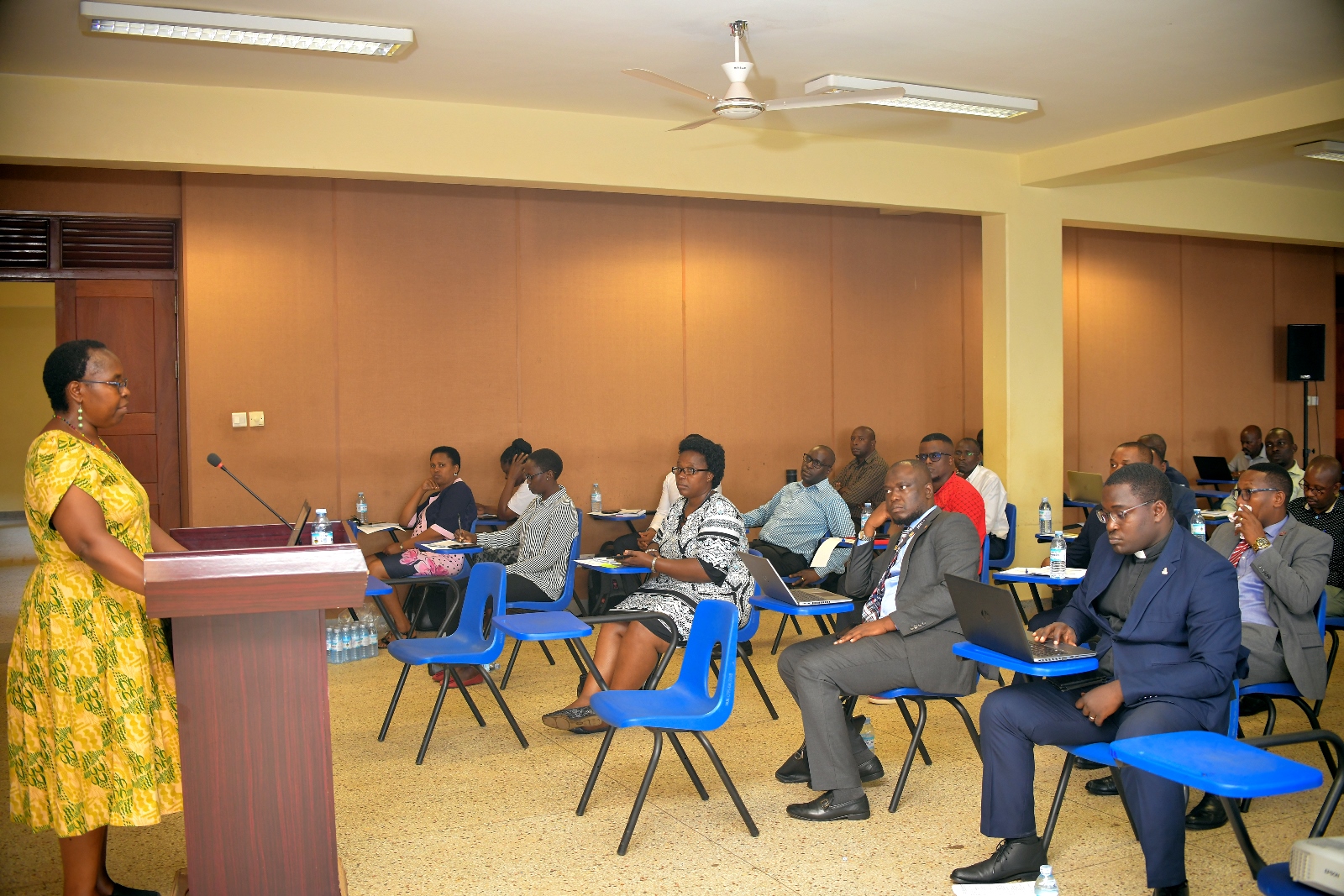
As a way of promoting Gender equality and inclusion, the Gender Mainstreaming Directorate on Thursday 6th June 2024 held a Male Round Table discussion for Makerere University Senior Academic and Administrative Male staff. Giving the objectives for the men’s workshop, the Senior Gender Officer Makerere University Mainstreaming Directorate Mr. Eric Tumwesigye stated that the directorate realized the need to provide space for male staff at Makerere University to identify their issues in relation to promoting gender equality.
He also noted that there is need to explore ways of exercising their agency in promoting gender equality and also need to build a male champions at Makerere University and beyond.
Speaking to the audience, the Key note speaker Rev. Nathan Mugalu Balirwana an Anglican Priest in Namirembe Diocese, A Counselling Psychologist who also doubles as the National Male and Religious Champion on Sexual Reproductive and Health Rights (SRHR), and a Male Engagement Specialist echoed on how mental ill health is affecting and spreading among men in and outside Uganda calling for the need to stand with the affected people to help ease their recovery. He noted that while statistics are important in social issues, it’s important to personify numbers and consider case by case in handling Men’s issues.
Cautioning that acts of basing on numbers when discussing matters that affect people’s lives, and individuals should stand out and speak out alone, as it’s longer about statistics but an individual, and that depressed men become problematic to the society.
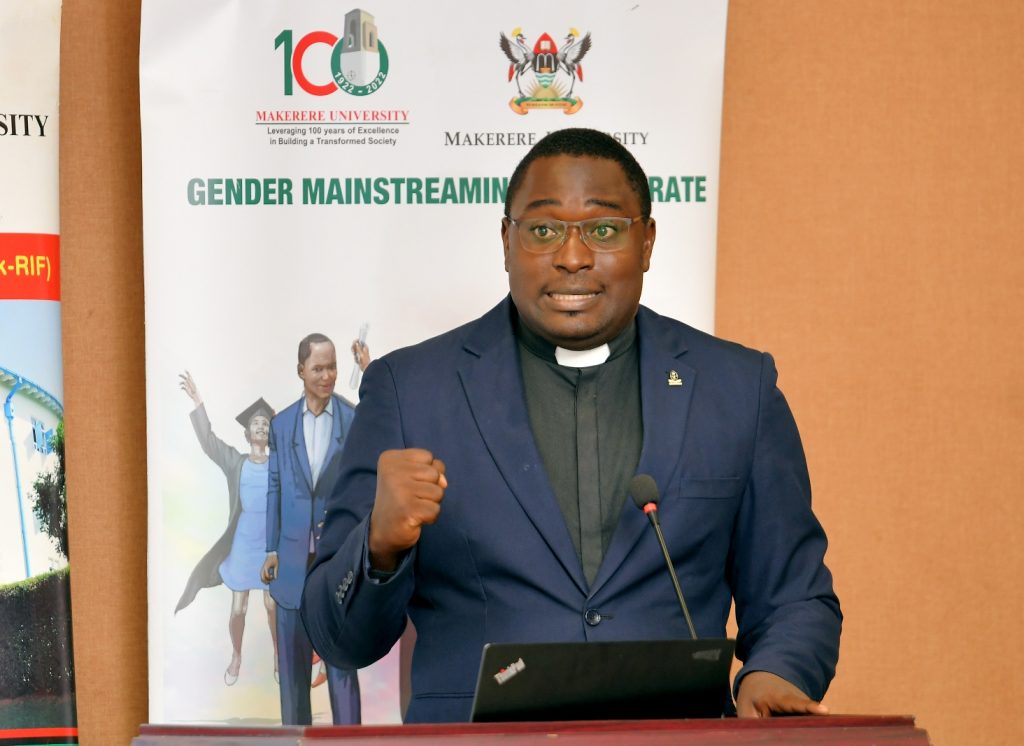
“Many men are suffering mental illness but because they lack enough safe spaces where they can be understood with empathy and unconditional positive regard. Men need Male more safe spaces and who to speak to, as many have resorted to ending their lives. We need to be there for each other. We should know that it’s not about statistics but an individual, depressed men, depress the entire society” remarked Rev. Mugalu.
He noted that there is need for more deliberate efforts to raise masculine Men. The absence of masculinity among men raises deficiencies in Men’s characters that worsen gender injustice, violence, inequalities etc. He noted that masculinity is a positive attribute that needs to be promoted among Men. He further stressed that Toxic Masculinity means the absence of Masculinity.
He noted the need to reach out to Men on the grassroots. Ignored Men are dangerous to their communities. It’s not about how much English we speak, it’s all about how many Men in the Ghettos, villages, Wanainchi that we reach with the message of gender equality, equity and justice. As long as Men on grassroots cannot define equality, we are far away from achieving gender equality.
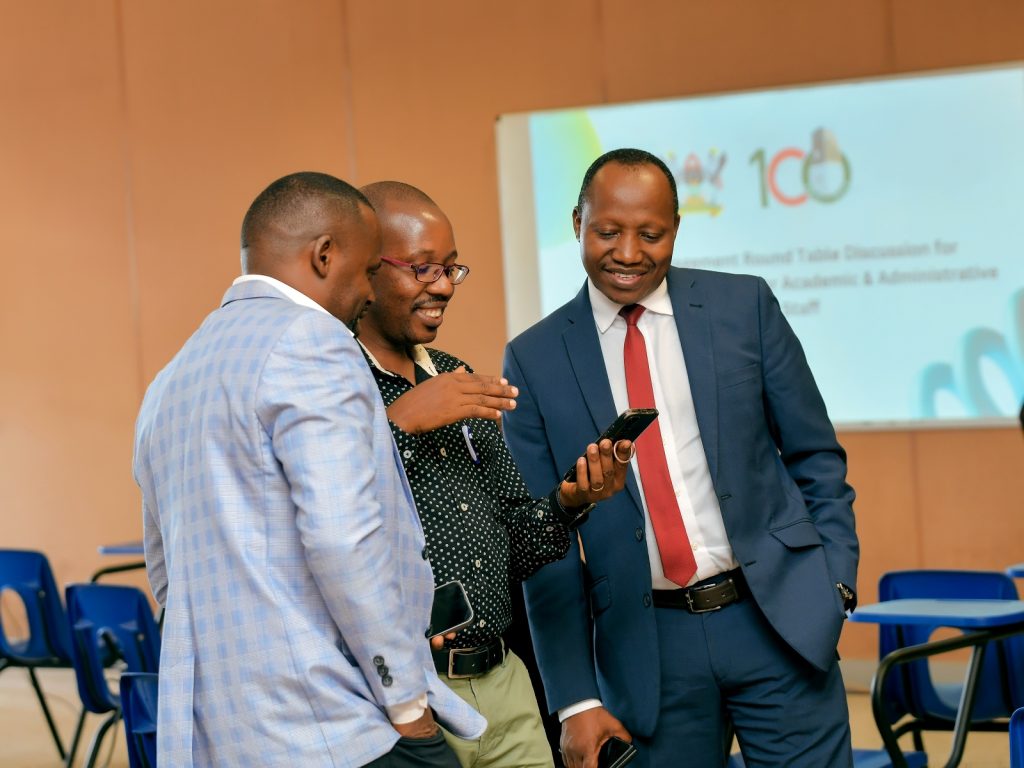
He further stresses the need to involve young men and boys in the struggle of achieving gender equality.
He noted the challenges men face in society and called for creation of safe spaces, where men can meet and share their challenges and get some advice as one of the mechanisms for reducing on the high rate of gender violence men face today, stating that several men today are wounded mentally by Gender Based violence but have no one to share with and even those that they would share with expect them to be men enough to handle the problem and also to heal others.
“The untold story is that 8 of 10 men are facing mental and physical Gender Based violence and they fear to talk about it, as society expects them to be men enough to withstand such challenges, this has affected many families and work places as wounded men wound others but are expected to heal others. Only a man that has been wounded and fully healed can heal others as he understands the pains” said Rev. Nathan.
Rev. Nathan further called for mentorship and engagement of the boys and men if we are to have a better society and also if we are to stop unwanted pregnancies and abortions which occur on a daily basis and cautioned about the generation growing without men, noting that the comfort zones stagnate men, and advised men to get out of their comfort zones and plan for future to avoid retirement issues.
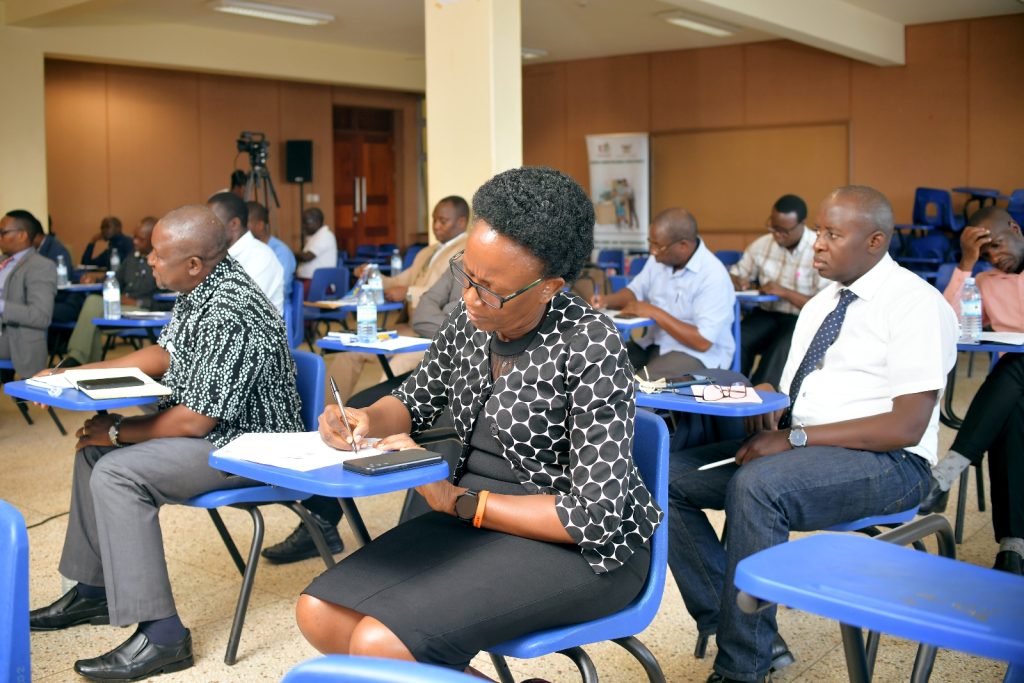
“We are risking a society without astute and well-adjusted masculine men, comfort zones are the most stagnating thing for men, there is need to be worried when we bring a generation that has nothing to lose, such people are determined to do anything. Men need to be engaged so much in the struggle to end abortions which occur daily. This can be through sensitization” he said.
The Principal Women in Development Officer, Ministry of Gender Labor and Social Development Hajji Mayanja Idi Mubarak noted that the percentage of men drop out is increasing highly calling for need to look into the barriers that are leading to the cause just like it was done with women.
“The same barriers that were affecting women are now affecting men, previous graduation noted that 52% were females and 48% men, a sign that there is a drop out of universities of the men in completing studies, and there is need to work on barriers of access to education by male students.” He said.
He advised men to balance work and home life to ease management of their responsibilities both at work and home as one way to reduce on the rampant causes of Gender Based Violence among homes.
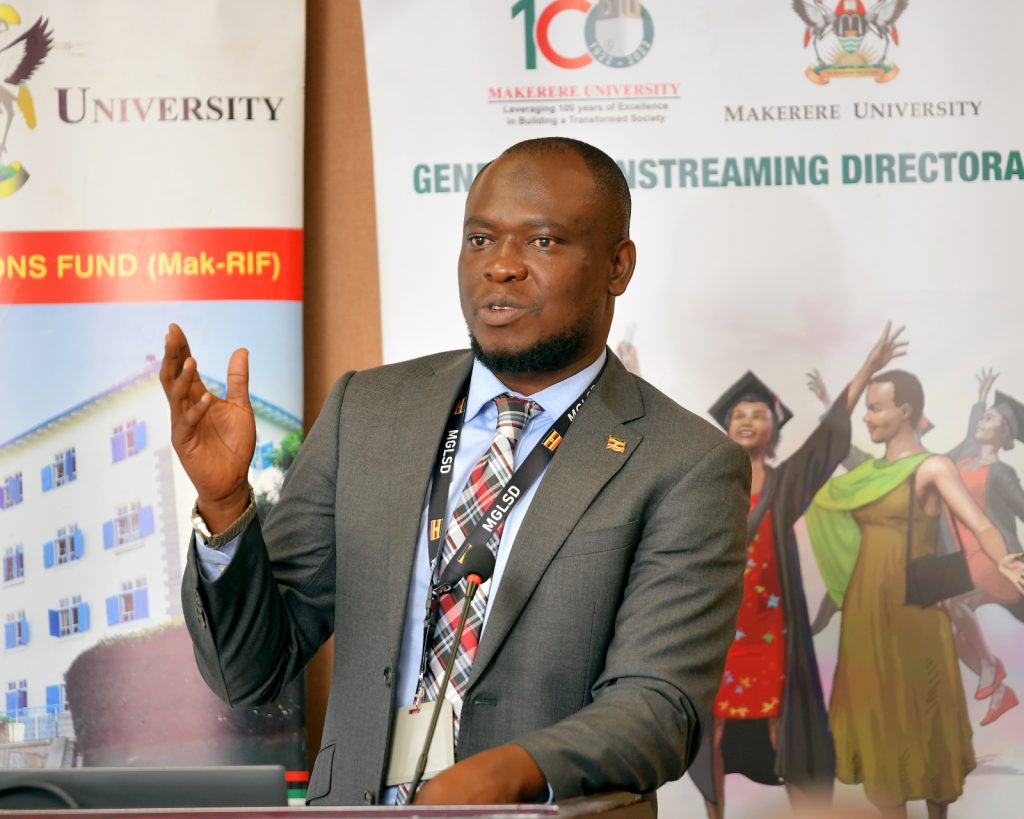
As a way of reducing on the cases of child torture by domestic workers and also unpaid care, Hajji Mubaraka called for day care centers at places of work and also revealed that the Ministry is coming up with a policy to regulate on the exploitation of domestic workers to see that they earn what is worthy their labor, noting that 90% of them are under paid and yet exploited with too much work load.
“We encourage our wives, sisters and daughters to work and call for salary increment, but we forget the young girls and women whom we leave behind as maids. Most of these are under paid compared to the work they do and some are not paid at all, that’s why we keep hearing cases of house helps torturing our children at home. It’s here that Ministry is coming up with a policy to regulate on the unpaid care work to see that these maids also earn what’s fair to their services and also need to have day care centers at our workplaces.” He said.
He mentioned that the Ministry’s key objectives in male involvement strategy are;
- To guide development and review Gender Based Violence policies and programs to integrate interventions on male involvement.
- To promote transformation of harmful gender norms and practices that perpetuate Gender Based Violence.
- To provide guidance on provision of male friendly services to meet victims of Gender Based Violence
- To promote strategic partnership in engaging men and boys in prevention and response to Gender Based Violence.
Revealing that government is putting up spaces to help men going through violence to enable them not only to open up but also get helped from what they go through and urged fellow men to make good use of the space created.
Mr. Mayanja continued to note that involvement of men and boys in the processes that prevent and respond to Gender Based Violence is an indispensable part of the process of changing the power of dynamics of existing gender roles and values that perpetuate Gender Based Violence as men play key role in bringing gender equality in our society, religions and traditions, since Uganda’s diverse cultural customs and taboos that define men’s status and expectations in different ways.
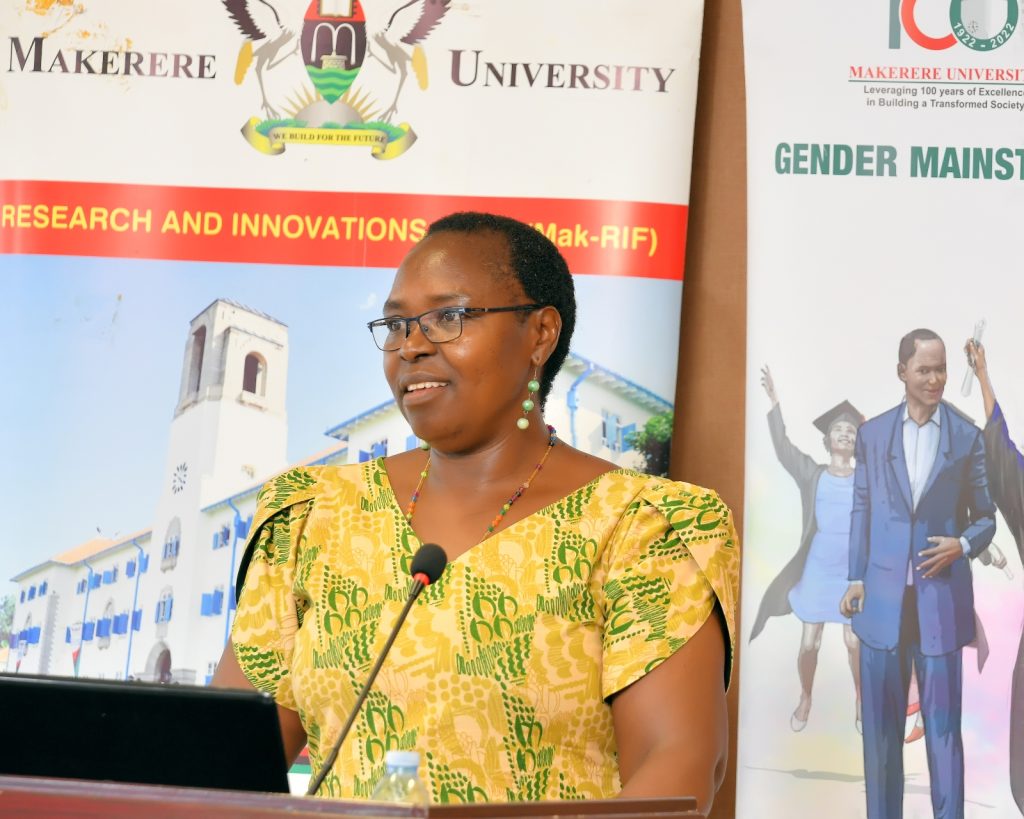
The Director Makerere University Gender Main streaming Directorate Dr. Euzobia Mugisha Baine stated that research was done on 6 universities Kyambogo University, Busitema University, Gulu University, Mbarara University with a purpose to explore the male involvement in the interventions to promote gender equality and women’s empowerment in universities and findings showed that efforts to engage men in programs that promote gender equality was regarded as important and exciting topic.
Giving her closing remarks, Dr. Euzobia thanked all the male staff of Makerere University for their participation and feedback that they provided and pledged continuation of more engagements.
“We are happy for the feedback provided by everyone, this is very important for us as we build for the future and we hope for more trainings“ Said Dr. Euzobia.
You may like
-


Mak News Magazine: February 2026
-
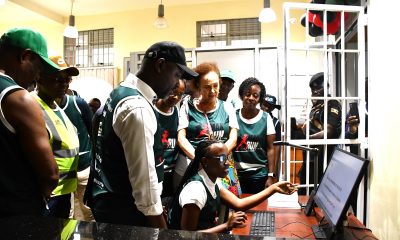

Students empowered to thrive through the Semester
-


Olivia Nakisita and the Quiet Urgency of Adolescent Refugee Health
-
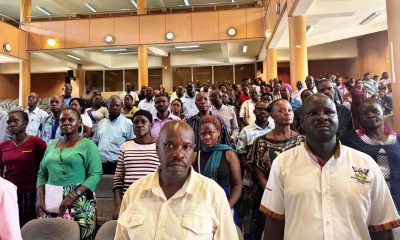

Support Staff Trained to Promote Safety of Students and Stakeholders
-


Holistic Retirement Planning includes Psychological, Emotional & Social well-being across all Career Stages
-
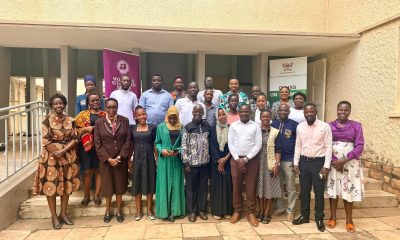

Ugandan Journalists Trained on Peace and Gender-Sensitive Reporting Ahead of 2026 Elections
General
Makerere Explores Strategic Industry Partnership with Psalms Food Industries to Strengthen Manufacturing Innovation
Published
31 minutes agoon
March 4, 2026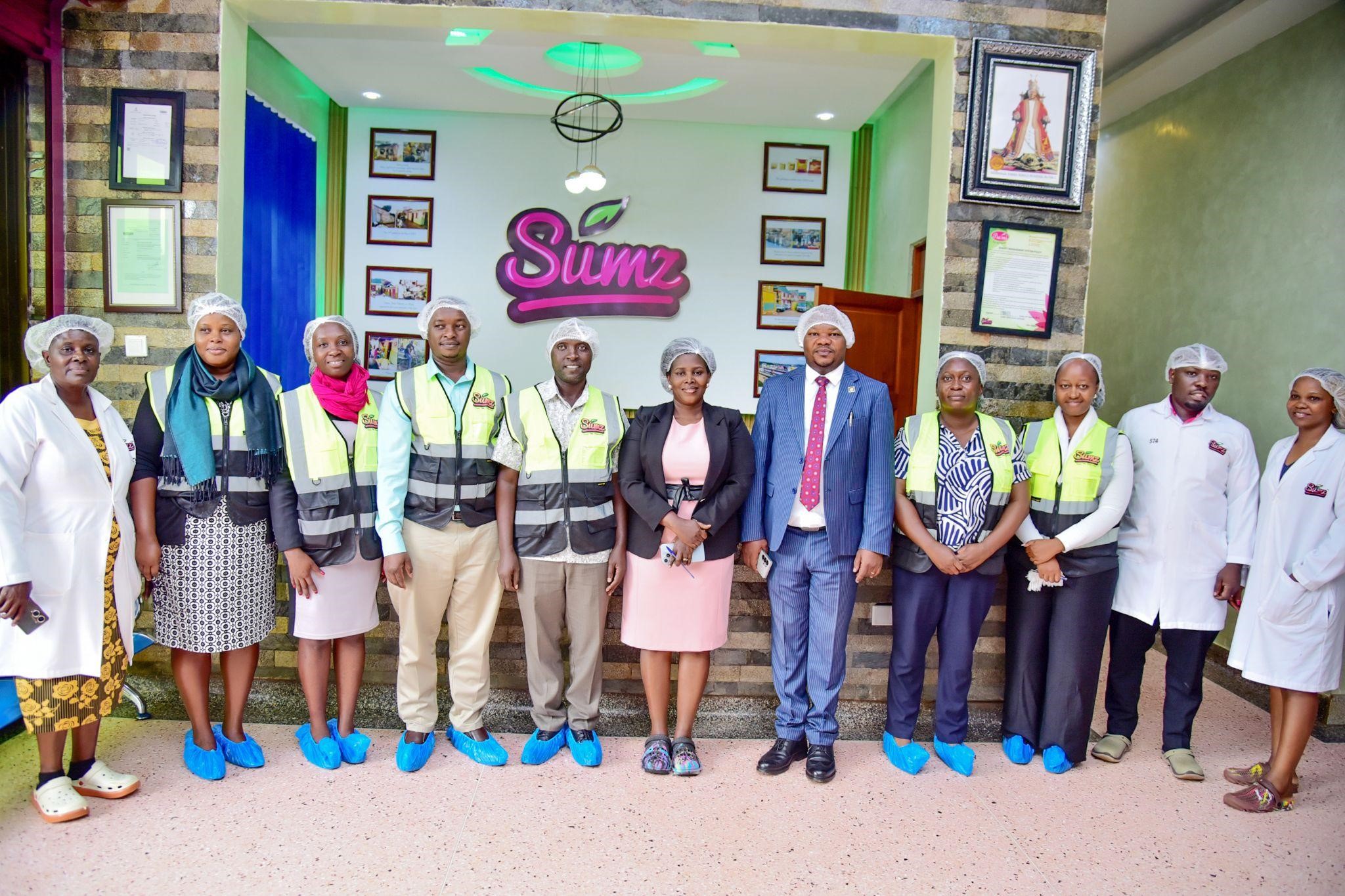
On 2nd March, 2026, representatives from the Advancement Office, the College of Business and Management Sciences and the University Innovation Pod visited Psalms Food Industries to discuss a prospective partnership aimed at strengthening university–industry collaboration in manufacturing, research, innovation, and skills development.
Psalms Food Industries, a homegrown snacks innovation and manufacturing company, operates three major brands, namely, Sumz, Afrikan Harvest and Krunchables, which have grown to a range of 37 products and target the introduction of five new products annually. The company distributes products across Kenya, Rwanda, the Democratic Republic of Congo, South Sudan, and, recently, Tanzania. As a labour of love, the idea of producing snacks was born during the honeymoon of Mr and Mrs Ngabirano, who now run Psalms Food Industries side by side.
Dr. Denis Ngabirano, CEO and Co-Founder of Psalms Food Industries, during the meeting, described the company as “a snacks innovation house, with all our products developed in-house.” He noted.
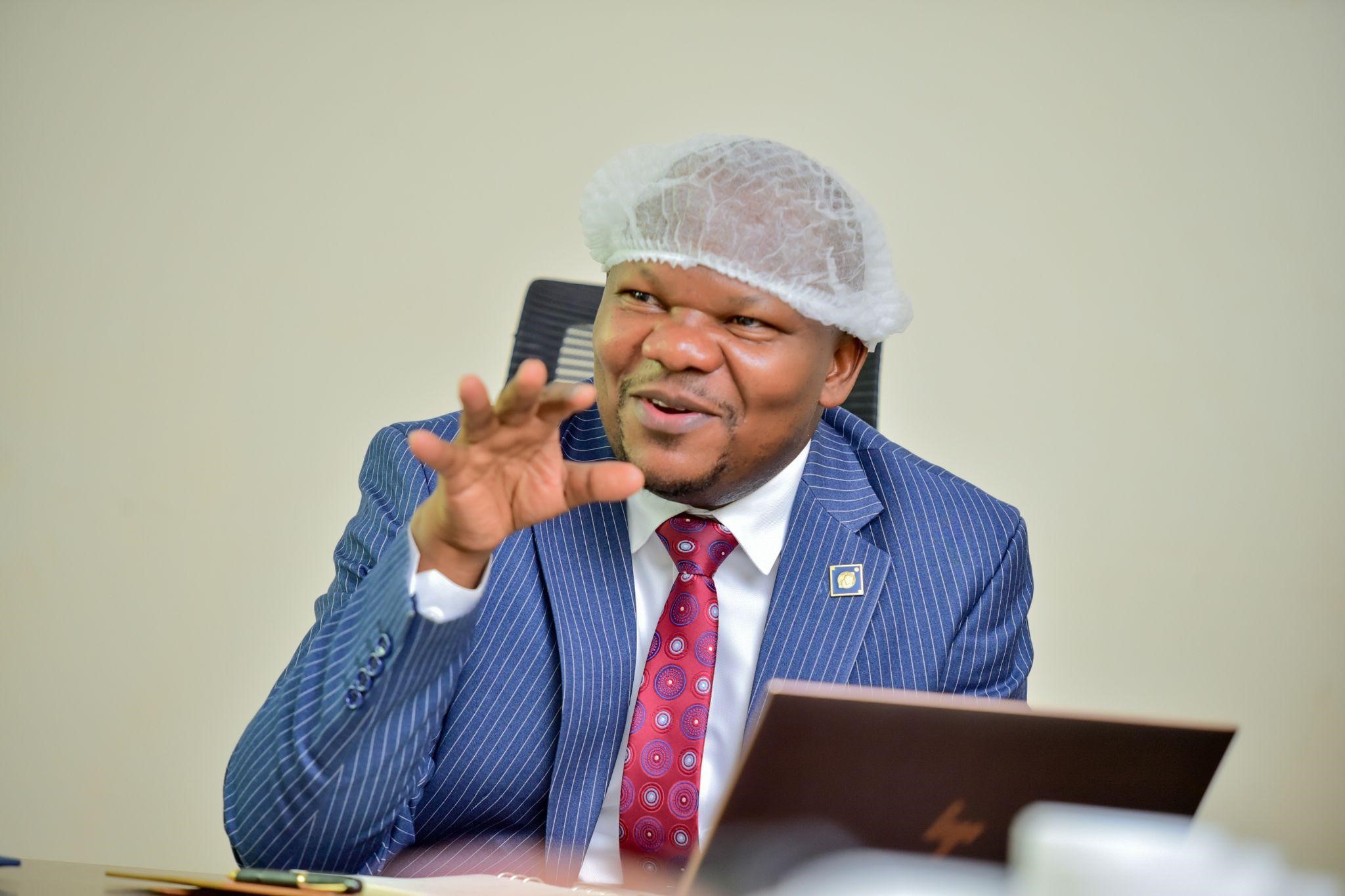
He emphasised the company’s commitment to quality assurance and consumer-centred research, noting that Psalms conducts surveys and gathers customer feedback to inform product development, supported by an internal microbiology and chemistry laboratory.
Dr. Denis Ngabirano noted that the company had only recently introduced two brands, “Afrikan Harvest for it’s health conscious clientele and Kruchables for it’s volume centric clientele.
“Afrikan Harvest has no additives, it is a brand for health-focused consumers,” he explained, while highlighting the differentiated positioning of their product lines. “Sumz is our premium brand, and Krunchables focuses on volume.”
Student-Centered Experiential Learning
A key focus of the meeting was structured experiential learning for students across disciplines. Potential areas of collaboration include internships, graduate trainee pathways, and hands-on exposure within Psalms’ incubation and production facilities.
The proposed engagement spans multiple fields, including environmental sciences, engineering, procurement and logistics, finance and accounting, quality control, production and manufacturing, human resource management, marketing, and international business.
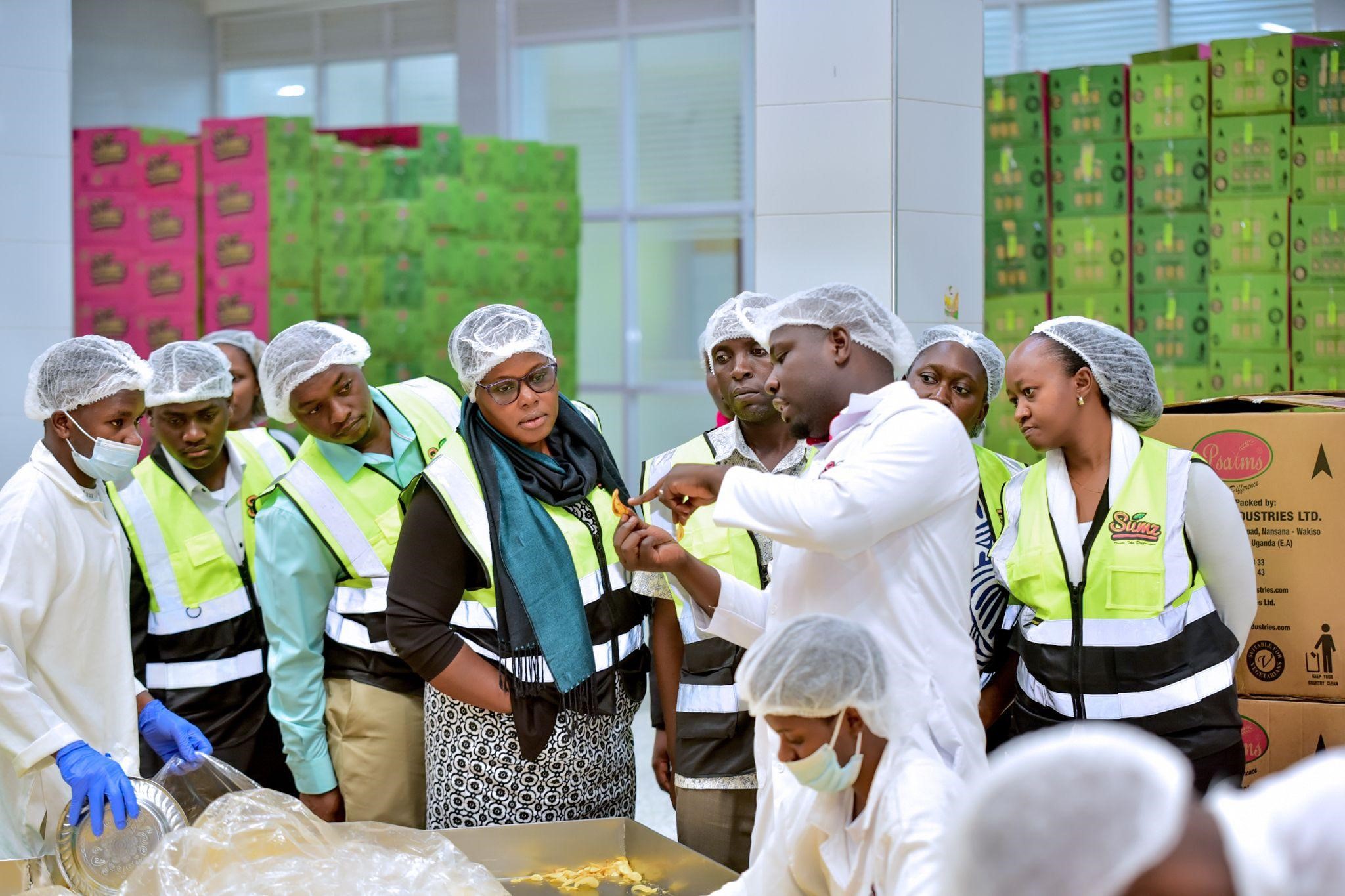
The partnership could provide students with direct exposure to real-time production systems, standard operating procedures (SOPs), and quality assurance frameworks, strengthening the practical relevance of their academic training.
Among the innovative ideas discussed was a potential competition involving students from the Fine Art and Industrial Design disciplines to redesign packaging for selected Sumz products. The proposal would allow top designs to be commercially adopted, creating a direct bridge between creativity, intellectual property development, and industrial application.
Research, Innovation and Commercialisation
Both institutions expressed interest in joint applied research initiatives, particularly in process optimisation, data analytics for manufacturing efficiency, product improvement, and sustainable production systems.
Opportunities were also discussed around collaborative research in machine design, crop development for snack processing, and factory energy solutions, areas that not only benefit Psalms but have broader implications for Uganda’s manufacturing sector.
The engagement further highlighted potential linkages with the University’s innovation and commercialisation structures, including the University Innovation Pod (UNIPOD), to support co-creation and scaling of student-led innovations.
Mr Awel Uwihanganye, Chief Advancement Officer at Makerere University, proposed strengthening the engagement through structured programming, including a planned collaboration between the University’s innovation Hub and the upcoming incubation Hub at Psalms Food Industries, particularly to support the commercialisation of research outcomes for both students and staff.
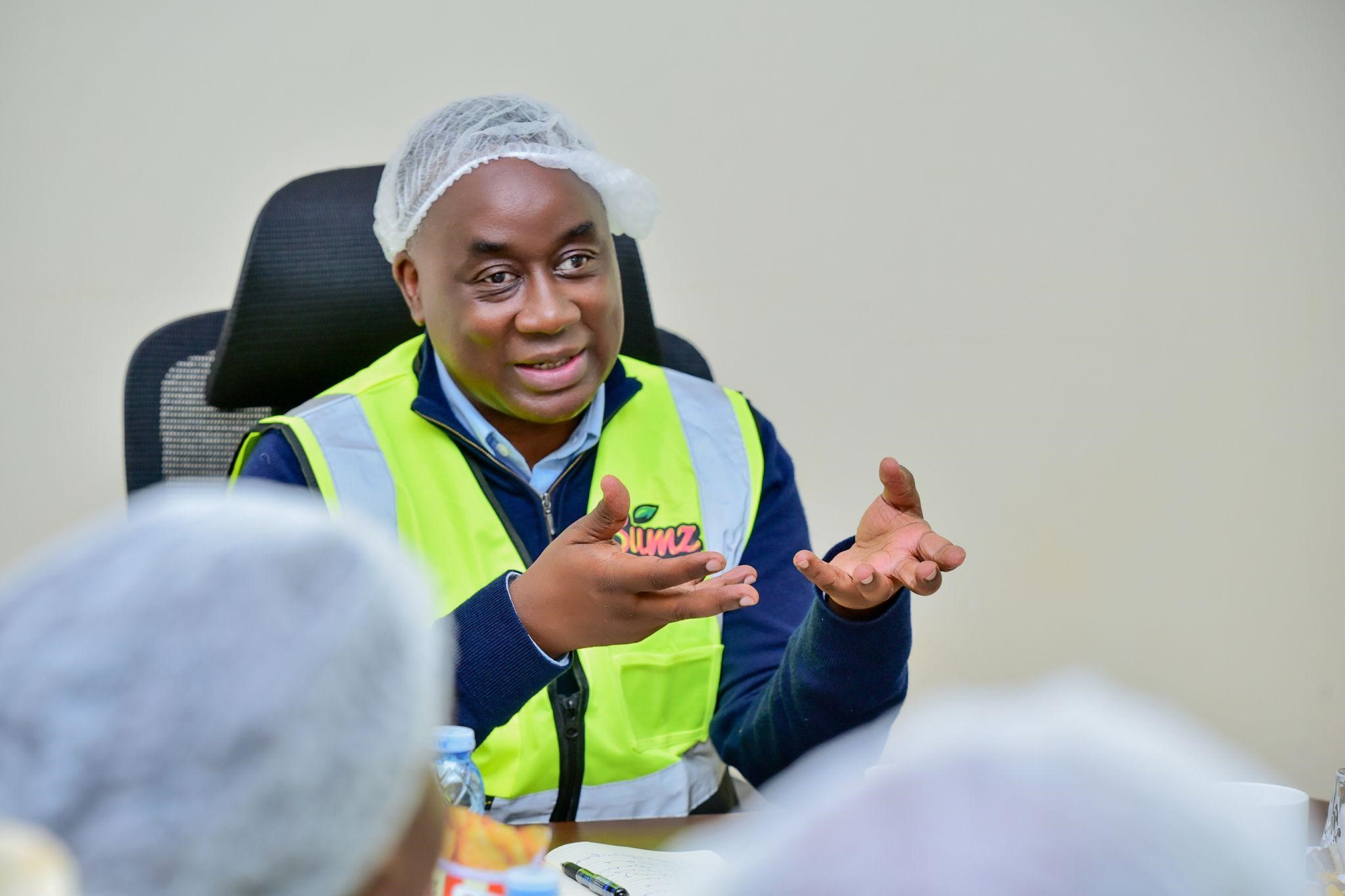
Curriculum Co-Creation and Staff Exchange
Beyond student placements, discussions also focused on co-developing academic content that responds more directly to industry needs, particularly within the manufacturing value chain.
Proposals included guest lectures by industry practitioners, staff exchange programmes to expose academic staff to factory operations, and tailored short courses for Psalms staff based on identified skills gaps.
Dr. Jude Mugarura, Head of the Department of Marketing and Management at COBAMS, emphasised the importance of embedding the partnership within academic programming. He proposed “internships for students in HR, marketing, international business, accounting and finance,” as well as staff exchanges to give University staff hands-on exposure to manufacturing operations.
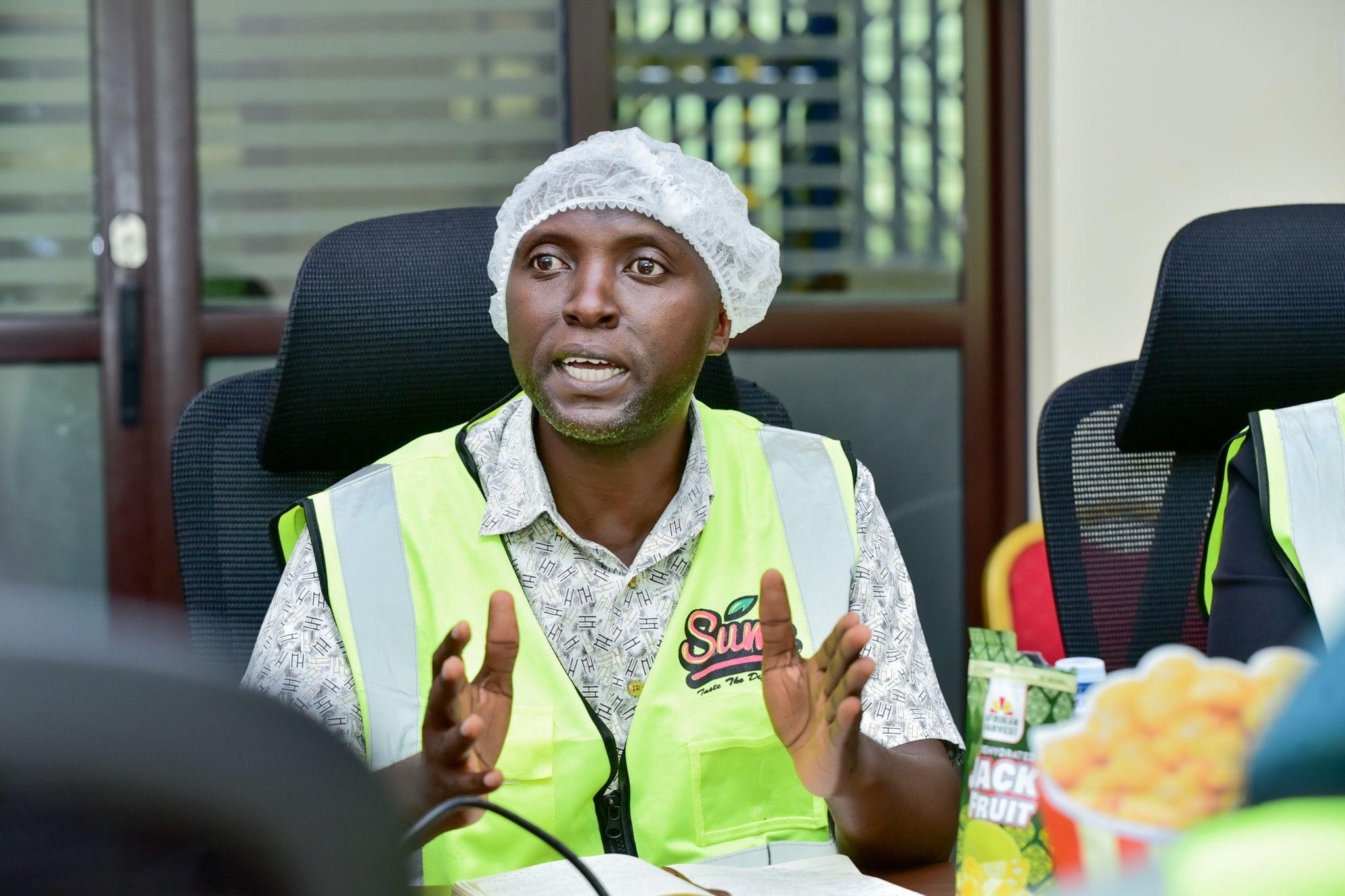
He further suggested specialised courses tailored to the factory’s needs and attachment of research students interested in manufacturing. Such collaboration would contribute to curriculum responsiveness and ensure that graduates are equipped with market-relevant competencies.
Strengthening University–Industry Linkages
The engagement reflects Makerere University’s continued commitment to strengthening partnerships that bridge knowledge generation and real-sector application.
Both institutions expressed a shared vision of building a structured, mutually beneficial collaboration that integrates research, innovation, skills development, and enterprise growth, positioning the University as a key knowledge partner in Uganda’s manufacturing transformation.
Discussions remain ongoing as both parties refine priority areas for formalisation.
Caroline Kainomugisha is the Communications Officer, Advancement Office.
General
Makerere University commemorates 13 transformative years of partnership with Mastercard Foundation
Published
2 days agoon
March 2, 2026
On Friday, 27th February 2026, Makerere University proudly celebrated 13 years of a significant partnership with the Mastercard Foundation, a prestigious independent organisation headquartered in Toronto, Canada. Since its inception in 2013 with the launch of the Scholars Program-currently headed by Prof. Justine Namaalwa, this collaboration has grown significantly, expanding to include two additional initiatives: The E-learning Initiative-headed by Prof. Paul Muyinda Birevu and the Africa Climate Collaborative-headed by Prof. Gorretie Nabanoga. This long-term partnership underscores the shared commitment to fostering education, innovation, and sustainability in Uganda and across Africa.
The colourful event coincided with the 76th Graduation Ceremony, during which Makerere University honoured Ms. Reeta Roy, the Founding President and CEO of the Mastercard Foundation, with an honorary Doctor of Laws.

In her commencement speech, Ms. Roy thanked Makerere University for considering a partnership with the Mastercard Foundation and for conferring upon her a prestigious honorary award.
“Mastercard Foundation is honoured to collaborate with this esteemed university, and I appreciate the recognition through this award. I am excited to be associated with Makerere University and look forward to actively embodying its values. Joining the broader community of alumni from this distinguished institution is a privilege, and I am eager to contribute to its legacy,” stated Ms. Roy.

During the reception in honour of Ms. Roy, the Chairperson of Makerere University Council, Dr. Lorna Magara, acknowledged the invaluable support from the Mastercard Foundation. She emphasised the profound impact of the Foundation’s various initiatives, particularly the scholarships for disadvantaged youth, which enable them to access higher education and opportunities that might have otherwise been beyond their reach.
“On behalf of the Makerere University Council and the broader University community, I extend our sincere gratitude to Mastercard Foundation for its commitment to collaborating with Makerere University in various endeavours, especially for providing scholarships to our underprivileged young people who would never have stepped inside a lecture room at the University.” Dr. Magara stated.

Dr. Magara, in a special way, thanked Ms. Roy for her transformative leadership and unwavering commitment to supporting young people in Africa, citing her efforts to ensure young people get their voices heard.
“As a university, our business is with young people. We are therefore committed to providing the environment and education that deliver meaningful pathways. We will provide an environment that ensures young people have a voice and agency to create meaningful change in society.” Dr. Magara pledged.

Dr. Magara further congratulated Ms. Roy on her honorary Doctor of Laws from Makerere University, noting that it is the university’s highest honour for individuals who have excelled in their careers.
“On behalf of the Makerere University community, I would like to extend my heartfelt congratulations on your honorary Doctor of Laws. This esteemed recognition represents the highest honour our institution can bestow on individuals who have demonstrated exceptional achievement and excellence across various facets of their career.” Dr. Magara remarked.
Prof. Justine Namaalwa, the Program Director of the Mastercard Foundation Scholars Program and the Coordinator for all Mastercard Foundation Initiatives at Makerere University, expressed her appreciation for the thirteen-year collaboration between Makerere University and the Mastercard Foundation. She highlighted that the partnership had yielded significant, impactful results.

“In 2013, Makerere University partnered with the Mastercard Foundation to educate the next generation of transformative African leaders who can positively impact their lives, their communities, and the economies of Africa. The partnership has had a significant impact. I thank the University Management and the Foundation team for this visionary collaboration,” remarked Prof. Namaalwa.
Prof. Namaalwa articulated that the partnership with the Mastercard Foundation is primarily focused on empowering young people as agents of change for transformational leadership in Africa. She presented compelling statistics demonstrating the positive impact of the scholars’ program, highlighting the success of individuals who have completed their education and their subsequent professional experiences after university graduation.

“This partnership focuses on young people, aiming to create positive change in their lives. To date, the Scholars Program has graduated 974 alumni, with 48% securing formal employment, 18% starting their own businesses, 8% participating in internships, and 5% pursuing further education. Overall, 72% of Scholar alumni are actively engaged in employment or entrepreneurship,” Prof. Namaalwa stated.
The colourful event showcased a dynamic array of activities that highlighted the entrepreneurial spirit of Scholars and alumni from the Mastercard Foundation at Makerere University. Attendees enjoyed a mini-exhibition featuring innovative products from these ventures.

A video documentary illustrated the positive impact of the three Mastercard Foundation initiatives. The event also featured inspiring poetry recitations by Scholars and a lively atmosphere of music and dance, creating an engaging and memorable experience for all participants.
The high-level event was attended by senior University officials, led by the Chairperson of Council, Dr. Lorna Magara; the Vice-Chancellor, Prof. Barnabas Nawangwe; the Vice-Chancellor, Academic Affairs, Prof. Sarah Ssali, Deputy, and the Ag. Deputy Vice-Chancellor, Finance and Administration Prof. Winston Tumps Ireeta. Mr Yusuf Kiranda, the University Secretary; and Prof. Buyinza Mukadasi, the Academic Registrar, Chancellor Emeritus-Prof. Ezra Suruma, former Chairperson of the Steering Committee of Mastercard Foundation Scholars Program-Prof. Umar Kakumba, and the Deputy Executive Secretary, RUFORUM, and former Program Coordinator of the Scholars Program at Makerere University-Dr. Florence Nakayiwa, among many other officials graced the function.

The event was also graced by a high-level delegation from the Mastercard Foundation, led by Ms. Reeta Roy, the Founding President of the Foundation, and included the Mastercard Foundation Teams from the Country offices in Kigali, Nairobi, and Kampala; the Program partners; the Mentors, Scholars and alumni; as well as the Program staff of the three Mastercard Foundation Initiatives at Makerere University.
At the end of the event, Makerere University honoured Ms. Reeta Roy with University memorabilia, including a pencil-drawn portrait, a pencil-drawn photo of the Ivory Tower, and other Ugandan crafts. Ms. Roy cut a graduation cake together with the 10 graduates of the 76th graduation ceremony from the Mastercard Foundation Scholars Program.
Bernard Buteera is the Principal Public Relations Officer for the Mastercard Foundation Scholars Program at Makerere University.

It is with great pleasure that I welcome you to this edition of Mak News Magazine, a publication that continues to chronicle Makerere University’s journey as a centre of academic excellence, innovation, and societal transformation.
The stories featured in this issue vividly demonstrate Makerere’s unwavering commitment to addressing national, regional, and global challenges through research, partnerships, and people-centred solutions. They reflect a university that is deeply engaged with society, one that applies knowledge not only to advance scholarship, but also to improve lives.
A recurring theme in this edition is innovation for resilience and inclusion. From the College of Agricultural and Environmental Sciences’ Healthy Soy Initiative combating child malnutrition amid climate change, to the cutting-edge work of CEDAT’s Team Green Minds integrating IoT into agriculture, Makerere continues to harness science and technology to respond to pressing development needs. Equally inspiring is the College of Natural Sciences’ success in securing international funding to scale up fish processing technologies, with a deliberate focus on empowering women and strengthening livelihoods.
This issue also highlights Makerere’s growing role in advancing health and wellbeing. The launch of the Early Intervention Psychiatry Services Clinic at Makerere University Hospital marks an important step in strengthening mental health services, while the Hospital’s transformation from a modest sickbay into a centre of excellence stands as a testament to decades of strategic investment, dedication, and service to the nation.
Our commitment to education access and global engagement is equally evident. Strategic partnerships, such as that between the College of Education and External Studies and the Uganda Vocational and Technical Assessment Board, are expanding pathways to quality education. The establishment of the first-ever United States Studies Centre in the Great Lakes Region positions Makerere as a hub for dialogue, research, and policy engagement on global affairs. We also celebrate our vibrant international community, with graduates drawn from 67 nationalities—affirming Makerere’s status as a truly global university.
This edition further showcases initiatives that ensure long-term institutional sustainability, including the launch of the CoCIS Endowment Fund, infrastructure developments such as the modern hostel at Buyana Farm, and transformative programmes supported by the Mastercard Foundation that continue to empower young people across the continent.
As you read through these pages, I invite you to reflect on the collective effort of our students, staff, alumni, partners, and supporters whose contributions make these achievements possible. Together, we continue to shape Makerere University as a place where knowledge serves humanity.
I wish you an engaging and inspiring read.
Prof. Barnabas Nawangwe
VICE CHANCELLOR
Trending
-

 Humanities & Social Sciences1 week ago
Humanities & Social Sciences1 week agoMeet Najjuka Whitney, The Girl Who Missed Law and Found Her Voice
-

 General1 week ago
General1 week ago76th Graduation Highlights
-

 Health2 weeks ago
Health2 weeks agoUganda has until 2030 to end Open Defecation as Ntaro’s PhD Examines Kabale’s Progress
-

 Agriculture & Environment2 weeks ago
Agriculture & Environment2 weeks agoUganda Martyrs Namugongo Students Turn Organic Waste into Soap in an Innovative School Project on Sustainable Waste Management
-

 General2 weeks ago
General2 weeks agoMastercard Foundation Scholars embrace and honour their rich cultural diversity
